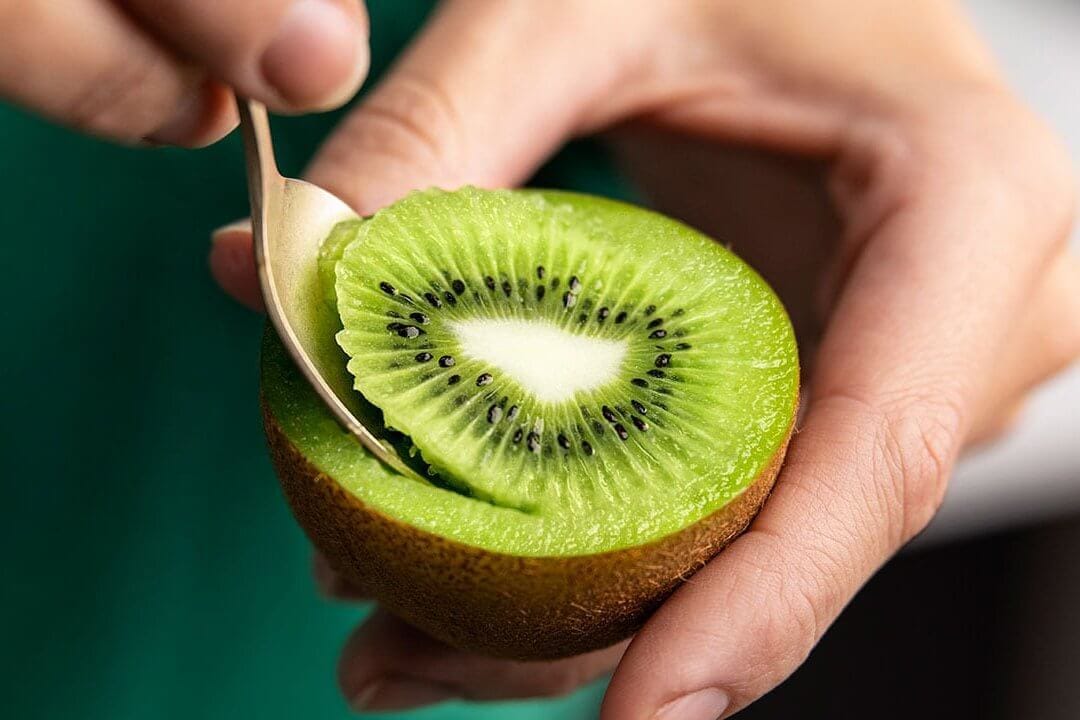- Thriving Guide
- Posts
- The Surprising Sleep Benefits of Eating Kiwis at Night
The Surprising Sleep Benefits of Eating Kiwis at Night
This simple nighttime fruit habit could help you fall asleep faster and wake up less throughout the night.

If you’ve ever stared at the ceiling wishing you could drift off more easily, the answer might be sitting in your fruit bowl. Eating kiwi before bed is gaining traction as a natural sleep aid and science is starting to support the trend.
Packed with essential nutrients and sleep-supporting compounds, kiwis might just be the bedtime snack your routine has been missing.
Can Kiwi Really Help You Sleep?
The short answer: Yes, it might.
In a small but promising study, participants who ate two kiwis an hour before bed for four weeks reported falling asleep faster, sleeping longer, and experiencing better sleep quality overall. Another study focused on athletes found similar results improved sleep duration, fewer nighttime awakenings, and better overall sleep efficiency after eating kiwi before bed.
While these studies are relatively small and more research is needed, the consistency of results has intrigued both sleep doctors and dietitians.
Why Kiwi Has Sleep-Friendly Powers
So how does this fuzzy green fruit impact sleep? The secret lies in its nutritional profile. Here’s what makes kiwi a standout:
1. Serotonin
Kiwi contains high levels of serotonin, a brain chemical that influences sleep quality, mood, and how quickly you fall asleep. Serotonin also plays a key role in transitioning to deeper, more restorative stages of sleep.
2. Melatonin Production
Your brain uses serotonin to create melatonin, the hormone that regulates your sleep-wake cycle. Unlike over-the-counter melatonin supplements, eating kiwi offers a natural and gradual boost through this serotonin-to-melatonin pathway.
3. Folate (Vitamin B9)
Low levels of folate have been linked to insomnia and disrupted sleep. Kiwi is rich in this essential B vitamin, which supports neurotransmitter function and may help regulate your internal clock.
4. Antioxidants
Kiwis are loaded with vitamin C and vitamin E, both powerful antioxidants. According to experts, oxidative stress can contribute to sleep issues. The antioxidants in kiwi may help reduce that stress, promoting a calmer nervous system and better quality rest.
In fact, just one kiwi contains over 70% of the recommended daily intake of vitamin C.
5. Fiber
Each kiwi has around 3 grams of fiber, which supports a healthy gut key for hormone regulation. A healthier gut can lead to improved serotonin production, better digestion, and more restful sleep.
How to Eat Kiwi for Better Sleep
Timing matters. To get the most out of this natural sleep support, aim to eat two kiwis about one hour before bedtime. This gives your body time to digest and absorb the nutrients that promote relaxation.
You can eat them fresh and whole (just peel and slice), or toss them into a bedtime smoothie or fruit salad. Just keep it simple avoid pairing them with added sugars or heavy foods, which could have the opposite effect.
Is Kiwi Right for Everyone?
As promising as it sounds, kiwi isn’t for everyone. Here’s what to keep in mind:
Allergies: If you have a known latex allergy or fruit sensitivities, kiwi could trigger a reaction.
Sugar content: While natural, kiwi does contain sugar. If you're managing blood sugar levels or on a restricted diet, consider checking with a healthcare provider before making it a daily habit.
Ultimately, the best way to know if kiwi helps your sleep is to try it consistently and observe how your body responds.
The Bottom Line
Kiwi may not be a magic bullet for everyone, but it’s a nutrient-rich, natural option with real potential to support sleep quality. With its unique mix of serotonin, melatonin-boosting nutrients, and antioxidants, it offers a gentle, food-based alternative to supplements or medications.
And at just 42 calories per fruit, adding two kiwis to your evening routine is a low-risk experiment with high reward potential.
If you enjoyed this article, share it with someone you care about or subscribe to our newsletter for more wellness insights you can trust.